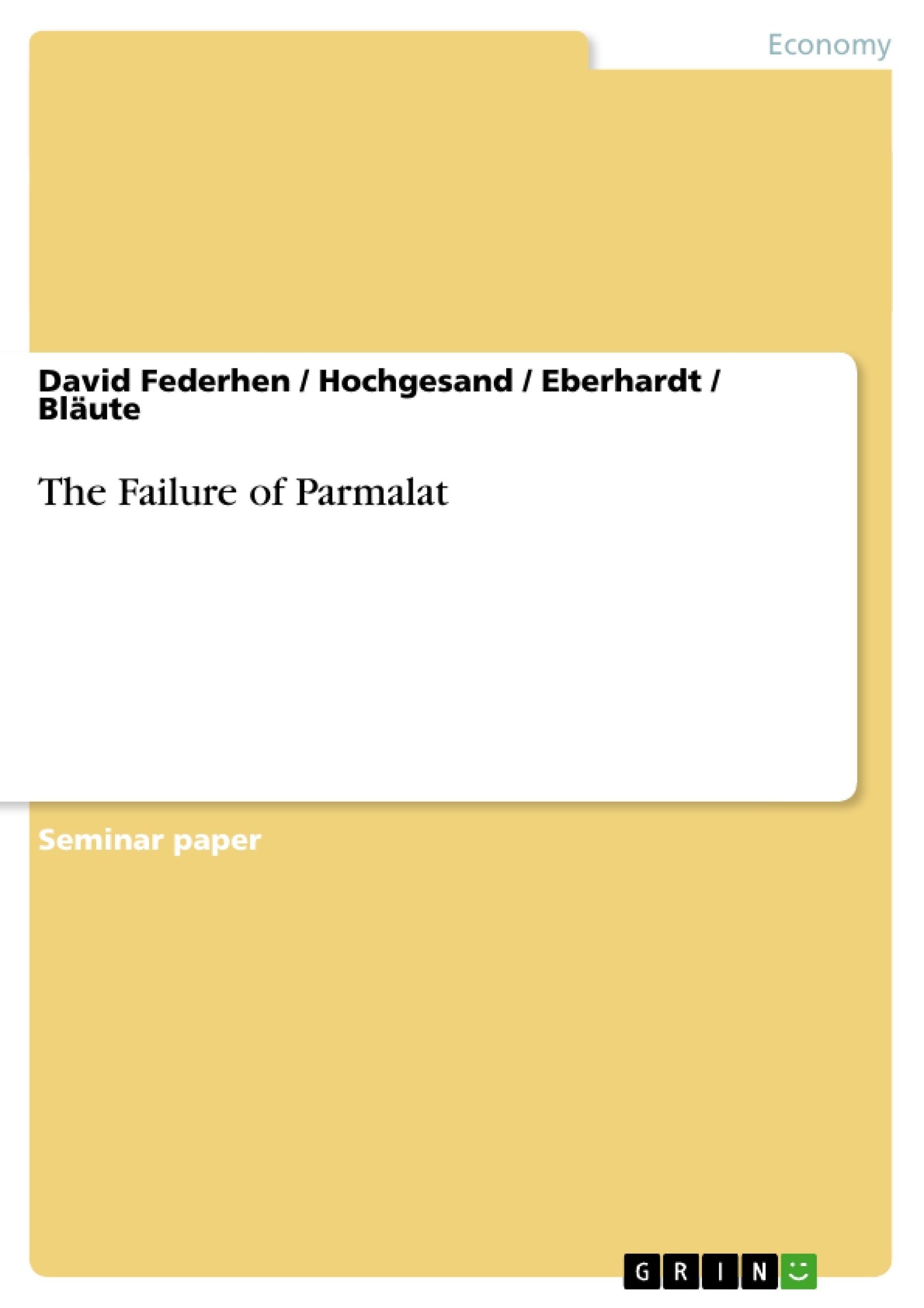Parmalat Finanziaria S.p.A. – literally ‘latte di Parma’ (milk of Parma) was founded in
1961 as a small milk-packaging company. In the mid-1970s, Parmalat Finanziaria
(hereafter Parmalat) started to process fresh milk in order to make it durable for days,
even without a refrigerator. Driven by its success in the long-life milk market, Parmalat
started to launch a massive acquisition spree to spread the business through Europe, Latin
America and Africa. (www.zmag.org) not according to citing guide
Later on, the company also began to produce vegetables, baked goods as well as fruit
juices and grew to the number three cookie producer in the US.
Parmalat became a transnational corporation in the food industry with sales touching
seven billion the graph shows more than 7 billion euro in 2002, more than 36,300
employees, and operations in more than 100 countries worldwide.
Inhaltsverzeichnis (Table of Contents)
- Company Background
- Management's misconduct
- How could all this be facilitated?
- How to prevent such corporate failure in future?
Zielsetzung und Themenschwerpunkte (Objectives and Key Themes)
This case study aims to analyze the Parmalat failure, examining how management misconduct led to the collapse of a once-successful multinational food company. The text explores the mechanisms of this corporate failure and seeks to identify potential preventative measures for similar occurrences in the future.
- Corporate Governance and its role in preventing financial misconduct
- The dangers of excessive reliance on family-owned businesses
- The importance of independent auditing and financial transparency
- The impact of creative accounting practices on corporate stability
- The role of offshore holding companies and fictitious assets in financial fraud
Zusammenfassung der Kapitel (Chapter Summaries)
- Company Background: This chapter details the history of Parmalat Finanziaria S.p.A., tracing its growth from a small milk-packaging company into a transnational corporation in the food industry. The chapter also highlights the family ownership structure and the role of Calisto Tanzi and his family in the company's management.
- Management's misconduct: This chapter focuses on the alleged financial misdeeds of Parmalat's management team. It outlines the accusations of fabricating assets, diverting funds to family businesses, and engaging in extensive fraud. Specific instances, such as the non-existent cash account at Bank of America and the fabricated milk powder sales to Cuba, are discussed.
Schlüsselwörter (Keywords)
This case study delves into key areas such as corporate governance, family-owned businesses, financial transparency, accounting fraud, offshore holding companies, and fictitious assets. It analyzes the Parmalat failure to illuminate these concepts and their impact on corporate stability and the broader economic landscape.
Frequently Asked Questions
What was the original business model of Parmalat?
Parmalat was founded in 1961 as a small milk-packaging company. In the mid-1970s, it transitioned into processing fresh milk to make it durable for long periods without refrigeration.
How large did Parmalat become before its failure?
It became a transnational corporation in the food industry with sales exceeding seven billion euros in 2002, employing over 36,300 people across 100 countries.
What were the primary causes of Parmalat's corporate failure?
The failure was caused by management misconduct, including the fabrication of assets, diversion of funds to family businesses, and extensive financial fraud.
What specific instances of fraud are mentioned in the case study?
Specific examples include a non-existent cash account at Bank of America and fabricated milk powder sales to Cuba.
Who was the key figure in Parmalat's management?
Calisto Tanzi and his family played a central role in the company's management and the subsequent financial misdeeds.
What key themes does the Parmalat case study analyze?
The study focuses on corporate governance, the risks of family-owned businesses, independent auditing, financial transparency, and the impact of creative accounting.
- Citar trabajo
- David Federhen (Autor), Hochgesand (Autor), Eberhardt (Autor), Bläute (Autor), 2004, The Failure of Parmalat, Múnich, GRIN Verlag, https://www.grin.com/document/26763



